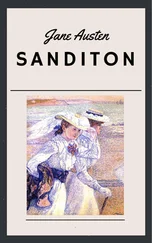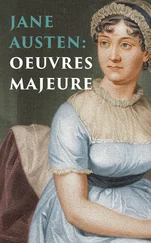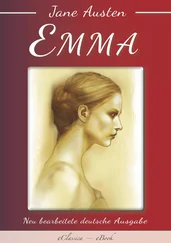Jane Austen - Collins Classics
Здесь есть возможность читать онлайн «Jane Austen - Collins Classics» — ознакомительный отрывок электронной книги совершенно бесплатно, а после прочтения отрывка купить полную версию. В некоторых случаях можно слушать аудио, скачать через торрент в формате fb2 и присутствует краткое содержание. Жанр: unrecognised, на английском языке. Описание произведения, (предисловие) а так же отзывы посетителей доступны на портале библиотеки ЛибКат.
- Название:Collins Classics
- Автор:
- Жанр:
- Год:неизвестен
- ISBN:нет данных
- Рейтинг книги:5 / 5. Голосов: 1
-
Избранное:Добавить в избранное
- Отзывы:
-
Ваша оценка:
- 100
- 1
- 2
- 3
- 4
- 5
Collins Classics: краткое содержание, описание и аннотация
Предлагаем к чтению аннотацию, описание, краткое содержание или предисловие (зависит от того, что написал сам автор книги «Collins Classics»). Если вы не нашли необходимую информацию о книге — напишите в комментариях, мы постараемся отыскать её.
Collins Classics — читать онлайн ознакомительный отрывок
Ниже представлен текст книги, разбитый по страницам. Система сохранения места последней прочитанной страницы, позволяет с удобством читать онлайн бесплатно книгу «Collins Classics», без необходимости каждый раз заново искать на чём Вы остановились. Поставьте закладку, и сможете в любой момент перейти на страницу, на которой закончили чтение.
Интервал:
Закладка:
After having avoided London for many years, principally on account of these very cousins who were continually writing, inviting and tormenting her, and whom she was determined to keep at a distance, she had been obliged to go there last Michaelmas with the certainty of being detained at least a fortnight. She had gone to a hotel, living by her own account as prudently as possible to defy the reputed expensiveness of such a home, and at the end of three days calling for her bill that she might judge of her state. Its amount was such as determined her on staying not another hour in the house, and she was preparing in all the anger and perturbation of her belief in very gross imposition there , and her ignorance of where to go for better usage, to leave the hotel at all hazards, when the cousins, the politic and lucky cousins, who seemed always to have a spy on her, introduced themselves at this important moment, and learning her situation, persuaded her to accept such a home for the rest of her stay as their humbler house in a very inferior part of London could offer.
She went; was delighted with her welcome and the hospitality and attention she received from everybody—found her good cousins the Breretons beyond her expectation worthy people—and finally was impelled by a personal knowledge of their narrow income and pecuniary difficulties to invite one of the girls of the family to pass the winter with her. The invitation was to one , for six months—with the probability of another being then to take her place—but in selecting the one, Lady Denham had shown the good part of her character. For, passing by the actual daughters of the house, she had chosen Clara, a niece—more helpless and more pitiable of course than any—a dependent on poverty—an additional burden on an encumbered circle—and one who had been so low in every worldly view as, with all her natural endowments and powers, to have been preparing for a situation little better than a nursery maid.
Clara had returned with her—and by her good sense and merit had now, to all appearance, secured a very strong hold in Lady Denham’s regard. The six months had long been over—and not a syllable was breathed of any change or exchange. She was a general favourite. The influence of her steady conduct and mild, gentle temper was felt by everybody. The prejudices which had met her at first, in some quarters, were all dissipated. She was felt to be worthy of trust, to be the very companion who would guide and soften Lady Denham, who would enlarge her mind and open her hand. She was as thoroughly amiable as she was lovely—and since having had the advantage of their Sanditon breezes, that loveliness was complete.
CHAPTER 4
“And whose very snug-looking place is this?” said Charlotte as, in a sheltered dip within two miles of the sea, they passed close by a moderate-sized house, well fenced and planted, and rich in the garden, orchard and meadows which are the best embellishments of such a dwelling. “It seems to have as many comforts about it as Willingden.”
“Ah,” said Mr. Parker. “This is my old house, the house of my forefathers, the house where I and all my brothers and sisters were born and bred, and where my own three eldest children were born; where Mrs. Parker and I lived till within the last two years, till our new house was finished. I am glad you are pleased with it. It is an honest old place; and Hillier keeps it in very good order. I have given it up, you know, to the man who occupies the chief of my land. He gets a better house by it, and I, a rather better situation! One other hill brings us to Sanditon—modern Sanditon—a beautiful spot. Our ancestors, you know, always built in a hole. Here were we, pent down in this little contracted nook, without air or view, only one mile and three quarters from the noblest expanse of ocean between the South Foreland and Land’s End, and without the smallest advantage from it. You will not think I have made a bad exchange when we reach Trafalgar House—which by the bye, I almost wish I had not named Trafalgar—for Waterloo is more the thing now. However, Waterloo is in reserve; and if we have encouragement enough this year for a little crescent to be ventured on, as I trust we shall, then we shall be able to call it Waterloo Crescent—and the name joined to the form of the building, which always takes, will give us the command of lodgers. In a good season we should have more applications than we could attend to.”
“It was always a very comfortable house,” said Mrs. Parker, looking at it through the back window with something like the fondness of regret. “And such a nice garden such an excellent garden.”
“Yes, my love, but that we may be said to carry with us. It supplies us, as before, with all the fruit and vegetables we want. And we have, in fact, all the comfort of an excellent kitchen garden without the constant eyesore of its formalities or the yearly nuisance of its decaying vegetation. Who can endure a cabbage bed in October?”
“Oh dear, yes. We are quite as well off for garden stuff as ever we were; for if it is forgot to be brought at any time, we can always buy what we want at Sanditon House. The gardener there is glad enough to supply us. But it was a nice place for the children to run about in. So shady in summer!”
“My dear, we shall have shade enough on the hill, and more than enough in the course of a very few years. The growth of my plantations is a general astonishment. In the meanwhile we have the canvas awning which gives us the most complete comfort within doors. And you can get a parasol at Whitby’s for little Mary at any time, or a large bonnet at Jebb’s. And as for the boys, I must say I would rather them run about in the sunshine than not. I am sure we agree, my dear, in wishing our boys to be as hardy as possible.”
“Yes indeed, I am sure we do. And I will get Mary a little parasol, which will make her as proud as can be. How grave she will walk about with it and fancy herself quite a little woman. Oh, I have not the smallest doubt of our being a great deal better off where we are now. If we any of us want to bathe, we have not a quarter of a mile to go. But you know,” (still looking back), “one loves to look at an old friend at a place where one has been happy. The Hilliers did not seem to feel the storms last winter at all. I remember seeing Mrs. Hillier after one of those dreadful nights, when we had been literally rocked in our bed, and she did not seem at all aware of the wind being anything more than common.”
“Yes, yes, that’s likely enough. We have all the grandeur of the storm with less real danger because the wind, meeting with nothing to oppose or confine it around our house, simply rages and passes on; while down in this gutter, nothing is known of the state of the air below the tops of the trees; and the inhabitants may be taken totally unawares by one of those dreadful currents, which do more mischief in a valley when they do arise than an open country ever experiences in the heaviest gale. But, my dear love, as to gardenstuff, you were saying that any accidental omission is supplied in a moment by Lady Denham’s gardener. But it occurs to me that we ought to go elsewhere upon such occasions, and that old Stringer and his son have a higher claim. I encouraged him to set up, you know, and am afraid he does not do very well. That is, there has not been time enough yet. He will do very well beyond a doubt. But at first it is uphill work, and therefore we must give him what help we can. When any vegetables or fruit happen to be wanted—and it will not be amiss to have them often wanted, to have something or other forgotten most days—just to have a nominal supply, you know, that poor old Andrew may not lose his daily job—but in fact to buy the chief of our consumption from the Stringers.”
Читать дальшеИнтервал:
Закладка:
Похожие книги на «Collins Classics»
Представляем Вашему вниманию похожие книги на «Collins Classics» списком для выбора. Мы отобрали схожую по названию и смыслу литературу в надежде предоставить читателям больше вариантов отыскать новые, интересные, ещё непрочитанные произведения.
Обсуждение, отзывы о книге «Collins Classics» и просто собственные мнения читателей. Оставьте ваши комментарии, напишите, что Вы думаете о произведении, его смысле или главных героях. Укажите что конкретно понравилось, а что нет, и почему Вы так считаете.












